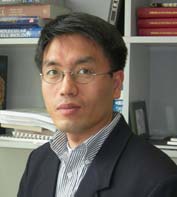A group of South Korean scientists has announced the discovery of two genes related to Parkinson’s disease, hoping that this finding will be a fundamental factor in successfully producing a treatment for this condition.
 |
| Scientist Jongkyeong Chung, leader of the research team at the Korea Institute of Science and Technology (Photo: bio.kaist) |
The South Korean scientists identified two proteins: Parkin and PINK1.
These genes contribute to the depletion of neurotransmitters by destroying components within motor cells and neurotransmitters in nerve neurons.
Additionally, the researchers discovered that the cells responsible for producing neurotransmitters are dying, which is a primary cause of Parkinson’s disease. However, they have yet to determine the factors leading to the death of these cells.
Professor Jongkyeong Chung, the head of the research team at the Korea Institute of Science and Technology, stated that this breakthrough could lead to a revolution in the treatment of Parkinson’s disease.
The findings were echoed by experiments conducted on human genes, yielding similar results to those obtained from experiments with fruit flies.
Following the identification of the main cause of this condition, the South Korean scientists are conducting further research to improve existing medications used in the treatment of Parkinson’s disease, aiming to develop a new drug for the condition within the next year.
 |
Parkinson’s Disease (Photo: csc.mrc) |
Based on their findings, the scientists have identified an existing medication that could serve as a treatment method for Parkinson’s disease. Simultaneously, they are striving to enhance this available medication into a more effective treatment within the next year.
It is estimated that around 5 million people worldwide are currently affected by Parkinson’s disease, a common neurodegenerative disorder following psychiatric conditions.
The successful discovery by the South Korean scientists has been published online in the journal Nature, a leading journal in scientific issues in the UK.
Ngọc Huyền




















































